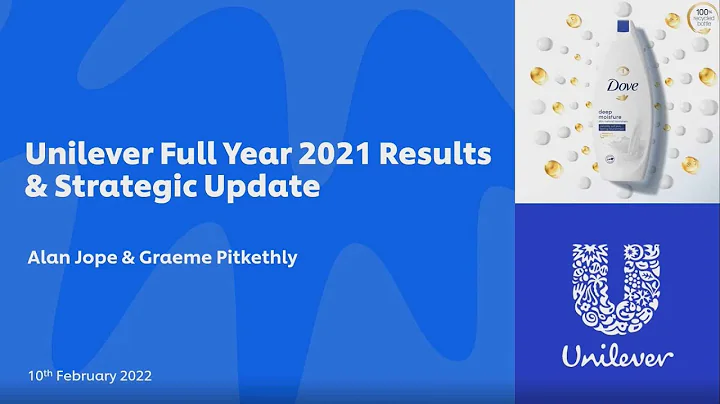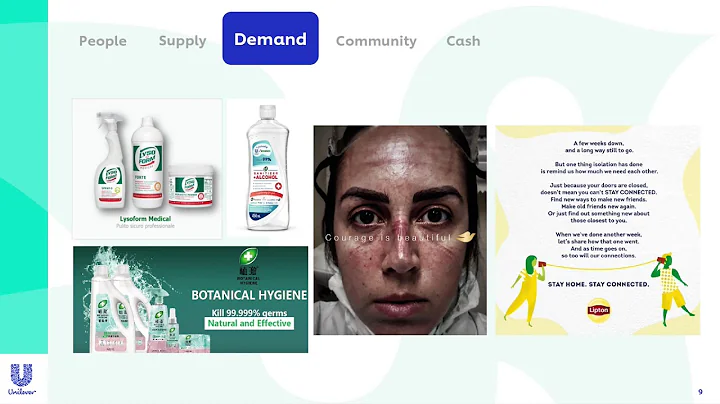On January 31, consumer goods giant Unilever released its fourth quarter and full-year financial report for fiscal year 2018. In fiscal year 2018, the company achieved sales of 50.982 billion euros (approximately RMB 398.016 billion), a year-on-year decrease of 5.1%, such as Excluding the impact of adverse currency effects and spread business, Unilever's sales increased by 3.1% year-on-year, and net profit reached 9.8 billion euros, a year-on-year increase of 51.2%. Sales in the fourth quarter were 12.2 billion euros (approximately RMB 95.245 billion), a year-on-year decrease of 5.3%.
Unilever's price fell by more than 2.5% after the stock market opened yesterday because its performance fell short of expectations.

Beauty and personal care contribute the most to performance
In terms of various markets, the hyperinflation in Latin America has a significant impact on performance, especially in Argentina, which has a vicious impact of reducing production by 10% on annual sales. If this part is excluded , Unilever's growth will be 3.4%.
The Asian region, which has always grown well, once again achieved strong growth, with market sales increasing by 6% year-on-year and sales volume increasing by 2.8% year-on-year. Among them, in the Chinese market, Unilever relies on the innovation of high-end product lines and the growth of e-commerce, which has offset the negative impact of the purifier blueair business on the overall market performance to a certain extent.
In terms of departments, beauty and personal care is still the department that contributes the most to performance. Last year, the department’s sales were 20.624 billion euros (approximately RMB 161.011 billion), an organic growth of 3.1% year-on-year, and transaction volume increased by 2.5%. The main brands and Dove continue to achieve strong growth in the new year. The Vaseline brand's new high-moisturizing product line, as well as the new personal care brand Love Beauty and Planet incubated within Unilever, have also boosted the company's growth and met consumers' rapidly growing demand for natural and environmentally friendly products.

The skin cleansing business grew due to innovation, which was mainly contributed by products and brands such as Lifebuoy, Dove's new body scrub, and the new brand Korea Glow launched in the fourth quarter.
The deodorant business achieved good volume growth due to strong performance from Dove and newly acquired brand Schmidt. Oral care sales remained the same as in 2017 due to fierce market competition. Among the newly acquired brands of
, Hourglass, REN, Living Proof and Kate Sommerville all achieved double-digit growth, , Dermalogica and Murad showed performance improvement momentum, and Prestige performed well. Dollar Shave Club not only has double-digit growth, but also continues to expand in the U.S. market.
In addition, beauty and personal care also contributes significantly to Unilever's profit margin. In terms of operating profit, the beauty and personal care department achieved an operating profit margin of 20% last year, which was higher than the 11.5% of the home care department and low. Compared with the food sector, it is 35.8%, but if the exchange rate effect is excluded, the actual operating profit margin is the highest among the three sectors, reaching 21.9%. This is important for Unilever, which is eager to increase profit margins.
In 2017, after Unilever rejected Heinz's acquisition proposal, the company's CEO Paul Pollman proposed a performance goal - "to achieve a profit margin of more than 20% by 2020" to stabilize investors and capital markets. In the past two years, Unilever has also increased its beauty and personal care business out of consideration for this goal.
Judging from last year's performance, Unilever is making progress towards this goal.
Financial Report Preview This year is not going to be good
"For Unilever, 2018 was a year of stable performance growth, with good sales growth and high-quality improvement in profit margins." Unilever CEO Alan Jope summarized the past year 2020 results and looking ahead, "Accelerating growth will be our top priority. Many of our brands enjoy leadership positions and we have significant opportunities to grow our markets and build upon our deep global reach and ambition to lead brands." "In 2019, market conditions will remain challenging. We expect underlying sales growth to be in the lower half of our multi-year range of 3% to 5%, underlying operating margins and another year of strong free cash," he said. The flow will continue to improve. We are still on track to achieve our 2020 goals."
Qiao Anlu is the new CEO who took office on January 1 this year. On November 29 last year, former CEO Paul Polman announced his retirement, and his successor was Qiao Anlu, then president of the beauty and personal care department.At that time, Paul Polman's departure was believed to be related to the simplification of the dual headquarters initiative. In order to reduce the impact of Brexit, Unilever announced in March last year that it would close its London headquarters and retain its Rotterdam headquarters. It was opposed by British shareholders. Although this plan ultimately failed, it intensified the rift between British shareholders and management. , thus accelerating the departure of Paul Polman.
Qiao Anlu took over this year, and the dual headquarters reform is still on the agenda. At yesterday's performance briefing, he said that Unilever is still considering abolishing the dual headquarters structure, but this issue is "important but not urgent." "Accelerating quality growth will be my top priority." Qiao Anlu emphasized.
However, Unilever’s performance targets are not favored by investment institutions. Hargraves Lansdowne, the UK's largest financial services company, downgraded Unilever's shares to "not recommended". George Salmon, an analyst at the agency, said that Unilever's 2020 target may not be completed on time. However, since its rivals , P&G, and have achieved profit margins of more than 20%, Unilever will eventually achieve its goal in the future.
[Copyright Tips] Yibang Power Network advocates respecting and protecting intellectual property rights. Without permission, no one may copy, reproduce, or otherwise use the contents of this website. If you find that there are copyright issues in articles on this site, please provide copyright questions, proof of identity, copyright certificate, contact information, etc. and send an email to [email protected], and we will communicate and handle it in a timely manner.














![Can I get your number? 7 [DCTVGO] - DayDayNews](https://i.ytimg.com/vi/zeT3zNxSiac/hq720.jpg?sqp=-oaymwEcCNAFEJQDSFXyq4qpAw4IARUAAIhCGAFwAcABBg==&rs=AOn4CLCaKimzsmrAEloCzrzDaxmwrEjwGw)



![[Prank] You're looking for a acting boyfriend, aren't you? - DayDayNews](https://i.ytimg.com/vi/CxUZoRZnQKw/hq720.jpg?sqp=-oaymwEcCNAFEJQDSFXyq4qpAw4IARUAAIhCGAFwAcABBg==&rs=AOn4CLDmm_uVFjJ-G9ajv9aW9kg3VjdM0g)


